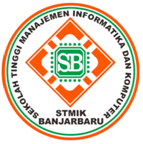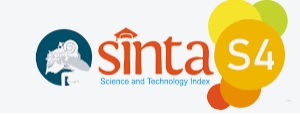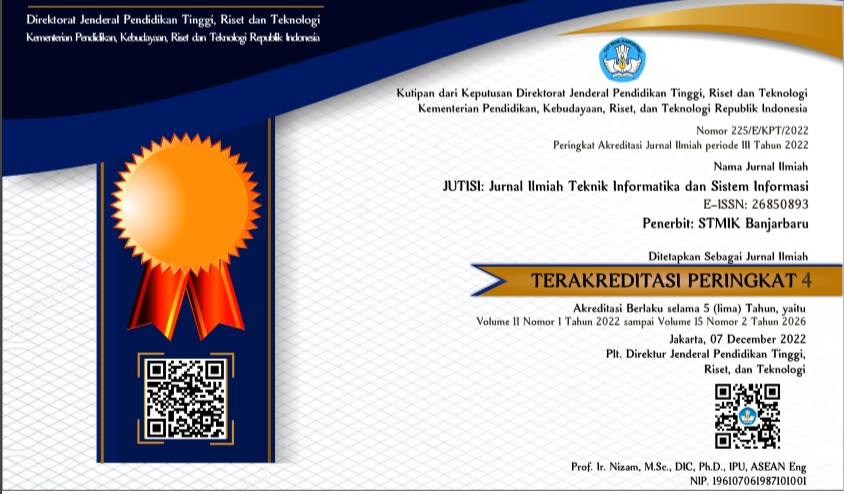Analisis Sentimen Deepseek Berdasarkan Ulasan Google Play Store Menggunakan Metode Naïve Bayes
Abstract
The advancement of artificial intelligence technologies, including the Deepseek application, has increasingly emphasized the importance of user experience. User reviews on the Google Play Store serve as a key source for evaluating application quality. However, the large volume of reviews presents challenges for effective sentiment analysis. This study investigates user sentiment toward Deepseek by applying the Naïve Bayes algorithm, combined with the Term Frequency-Inverse Document Frequency (TF-IDF) weighting technique. The dataset, obtained from Kaggle, contains 15,124 reviews categorized into positive, neutral, and negative sentiments. Model evaluation was conducted using 5-Fold Cross Validation. Results indicate that the model achieved an average accuracy of 87%, with the highest performance observed in the positive sentiment category. These findings may serve as a valuable reference for developers aiming to improve the overall quality and user satisfaction of the Deepseek application.
Key words: Data Mining; Sentiment Analysis; Naïve Bayes; Deepseek
Abstrak
Perkembangan teknologi kecerdasan buatan, termasuk aplikasi Deepseek, semakin menekankan pentingnya pengalaman pengguna. Ulasan pengguna di Google Play Store menjadi sumber data utama dalam mengevaluasi kualitas aplikasi. Namun, banyaknya ulasan yang tersedia menyulitkan proses analisis sentimen secara manual. Penelitian ini menganalisis sentimen pengguna terhadap Deepseek dengan menggunakan algoritma Naïve Bayes yang dikombinasikan dengan metode pembobotan Term Frequency-Inverse Document Frequency (TF-IDF). Dataset yang digunakan berasal dari Kaggle, terdiri dari 15.124 ulasan dan diklasifikasikan ke dalam tiga kategori sentimen: positif, netral, dan negatif. Validasi model dilakukan menggunakan metode 5-Fold Cross Validation. Hasil menunjukkan model memiliki akurasi rata-rata sebesar 87%, dengan performa tertinggi pada kategori sentimen positif. Temuan ini diharapkan dapat menjadi acuan bagi pengembang dalam meningkatkan kualitas layanan dan kepuasan pengguna aplikasi Deepseek secara berkelanjutan.
Keywords
References
A. Nurian, M. S. Ma’arif, I. N. Amalia, and C. Rozikin, “Analisis Sentimen Pengguna Aplikasi Shopee Pada Situs Google Play Menggunakan Naive Bayes Classifier,” J. Inform. dan Tek. Elektro Terap., vol. 12, no. 1, pp. 97–105, Jan. 2024, doi: 10.23960/jitet.v12i1.3631.
A. N. Hasanah and B. N. Sari, “Analisis Sentimen Ulasan Pengguna Aplikasi Jasa Ojek Online Maxim Pada Google Play Dengan Metode Naïve Bayes Classifier,” J. Inform. dan Tek. Elektro Terap., vol. 12, no. 1, pp. 90–96, Jan. 2024, doi: 10.23960/jitet.v12i1.3628.
C. Padurariu and M. E. Breaban, “Dealing with Data Imbalance in Text Classification,” Procedia Comput. Sci., vol. 159, pp. 736–745, 2019, doi: https://doi.org/10.1016/ j.procs.2019.09.229.
D. P. Santoso and W. Wibowo, “Analisis Sentimen Ulasan Aplikasi Buzzbreak Menggunakan Metode Naïve Bayes Classifier pada Situs Google Play Store,” J. Sains dan Seni ITS, vol. 11, no. 2, pp. D190–D196, 2022, doi: 10.12962/j23373520.v11i2.72534.
P. H. C. Samanmali and R. A. H. M. Rupasingha, “Sentiment analysis on google play store app users’ reviews based on deep learning approach,” Multimed. Tools Appl., vol. 83, no. 36, pp. 84425–84453, 2024, doi: 10.1007/s11042-024-19185-w.
S. Ahammad, S. A. Sinthia, M. Ahmed, M. Hossain, N.-A.-A. Asif, and N. A. Ikram, “Deep Learning-based Sentiment Analysis of User Generated Reviews of Various AI Powered Mobile Applications,” in 2024 International Conference on Inventive Computation Technologies (ICICT), 2024, pp. 505–512. doi: 10.1109/ICICT60155.2024.10544699.
G. Jeffson Sagala and Y. T. Samuel, “Sentiment Analysis on ChatGPT App Reviews on Google Play Store Using Random Forest Algorithm, Support Vector Machine and Naïve Bayes,” Int. J. Eng. Bus. Soc. Sci., vol. 2, no. 04, pp. 1194–1204, Mar. 2024, doi: 10.58451/ijebss.v2i04.148.
K. Kevin, M. Enjeli, and A. Wijaya, “Analisis Sentimen Pengunaaan Aplikasi Kinemaster Menggunakan Metode Naive Bayes,” J. Ilm. Comput. Sci., vol. 2, no. 2, pp. 89–98, Jan. 2024, doi: 10.58602/jics.v2i2.24.
M. Raffi, A. Suharso, and I. Maulana, “Analisis Sentimen Ulasan Aplikasi Binar Pada Google Play Store Menggunakan Algoritma Naïve Bayes Sentiment Analysis of Binar Application Reviews on Google Play Store Using Naïve Bayes Algorithm,” J. Inf. Technol. Comput. Sci., vol. 6, no. 1, pp. 1–7, 2023, [Online]. Available: https://pdfs.semanticscholar.org/d43d/ 517a3e660d7316ca43ce738593e033f92a90.pdf
L. Oleshchenko and O. Melnychuk, “Ensemble Classification Methods of Machine Learning for Analyzing News Texts for Falsity BT - Advances in Computer Science for Engineering and Education VII,” Z. Hu, F. Yanovsky, I. Dychka, and M. He, Eds., Cham: Springer Nature Switzerland, 2025, pp. 349–361.
S. Verma, S. Agrawal, S. Gulati, and G. P, “A Comparative Study on Spam Identification using Naive Bayes and SVM,” in 2024 5th International Conference on Data Intelligence and Cognitive Informatics (ICDICI), IEEE, Nov. 2024, pp. 914–919. doi: 10.1109/ICDICI62993.2024.10810925.
S. Gadri, S. Chabira, S. Ould Mehieddine, and K. Herizi, “Sentiment Analysis: Developing an Efficient Model Based on Machine Learning and Deep Learning Approaches,” 2022, pp. 237–247. doi: 10.1007/978-3-030-93247-3_24.
H. Chauhan, K. S. Rathore, and V. G. Rajan, “Sentiment Analysis using Supervised Machine Learning,” in 2022 2nd International Conference on Advance Computing and Innovative Technologies in Engineering (ICACITE), IEEE, Apr. 2022, pp. 1276–1279. doi: 10.1109/ICACITE53722.2022.9823681.
N. L. Adam, N. H. Rosli, and S. C. Soh, “Sentiment Analysis on Movie Review using Naïve Bayes,” in 2021 2nd International Conference on Artificial Intelligence and Data Sciences (AiDAS), IEEE, Sep. 2021, pp. 1–6. doi: 10.1109/AiDAS53897.2021.9574419.
M. Cherradi and A. El Haddadi, “Comparative Analysis of Machine Learning Algorithms for Sentiment Analysis in Film Reviews,” Acadlore Trans. AI Mach. Learn., vol. 3, no. 3, pp. 137–147, 2024, doi: 10.56578/ataiml030301.
M. Alkaff, A. Rizky Baskara, and Y. Hendro Wicaksono, “Sentiment Analysis of Indonesian Movie Trailer on YouTube Using Delta TF-IDF and SVM,” in 2020 Fifth International Conference on Informatics and Computing (ICIC), IEEE, Nov. 2020, pp. 1–5. doi: 10.1109/ICIC50835.2020.9288579.
N. Boyko and K. Boksho, “Application of the naive Bayesian classifier in work on sentimental analysis of medical data,” CEUR Workshop Proc., vol. 2753, pp. 230–239, 2020.
M. Liang and T. Niu, “Research on Text Classification Techniques Based on Improved TF-IDF Algorithm and LSTM Inputs,” Procedia Comput. Sci., vol. 208, pp. 460–470, 2022, doi: 10.1016/j.procs.2022.10.064.
I. R. Dina, M. A. Barata, and P. E. Yuwita, “Penerapan Data Mining pada Algoritma Multiple Linear Regression dalam Peramalan Harga Emas ,” SMARTICS J., vol. 11, no. 1 SE-Article, pp. 1–7, Apr. 2025, doi: 10.21067/smartics.v11i1.11710.
How To Cite This :
Refbacks
- There are currently no refbacks.











